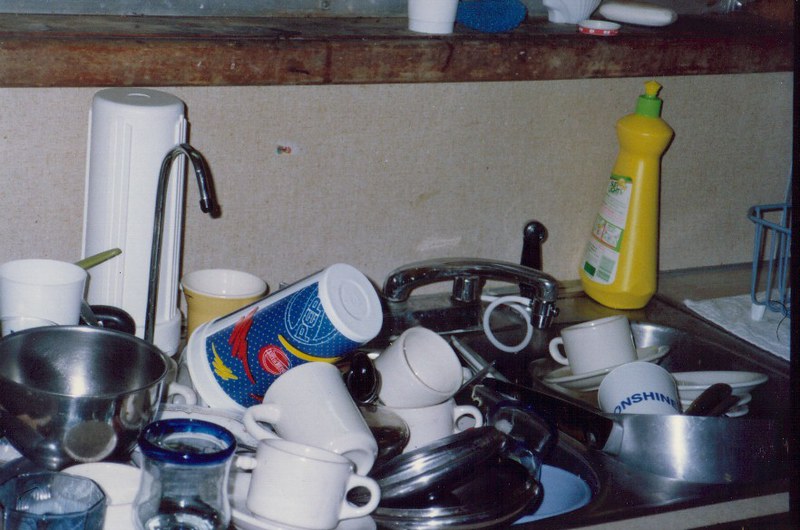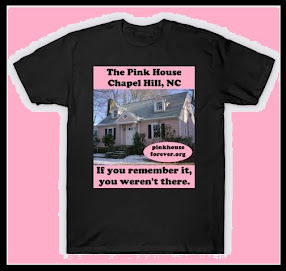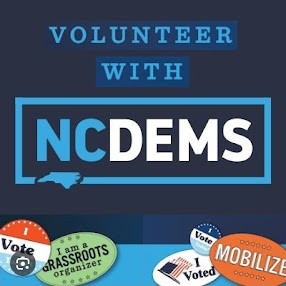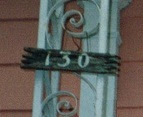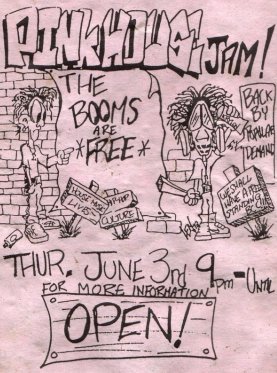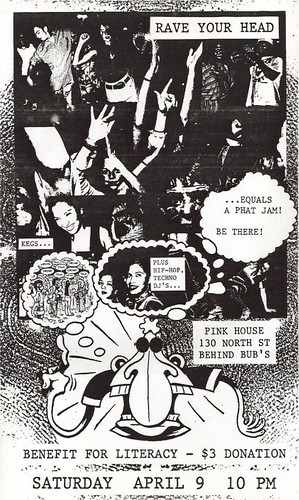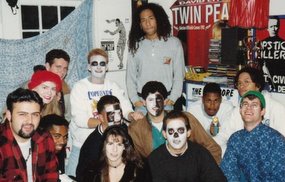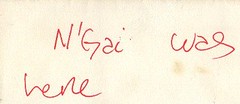"Disco Mania: Bee Gees And Leisure Suits Live," New York Times, 5/6/91
Campus Life: North Carolina
By KYLE YORK SPENCER

Photo: Students at the University of North Carolina at Chapel Hill have become fascinated with the look and mood of the 1970's by reviving its clothes, music and slang. Students attended a recent party at a local club where they danced to disco music and, some, wore bell-bottoms. (Duane Hall for The New York Times). Courtesy of Elizabeth Dryman Deifell.
When Dayna Baird, a senior English major at the University of North Carolina, packed her polyester bell-bottoms and sent them home, she had not yet received her invitation to the 1970's disco night at the local dance club here. But when the invitation arrived, she immediately called her parents in Dublin, Ohio, to send back the pants.
Ms. Baird is an avid disco dancer who knows the name of the Brady Bunch's singing group and who owns a leisure suit. She is not an oddity here. She is one of hundreds of students who have caught on to a 1970's craze.
Many attribute its popularity to the first annual 70's dance held in the student union on Feb. 9. About 500 students turned out to model leisure suits, show off disco steps and demonstrate their knowledge of '70's trivia. Since then, the music of K.C. and the Sunshine Band, Abba and assorted other '70's bands can often be heard at fraternity parties, local clubs' parties, and sometimes even the cafeteria.
'Can't Get Enough of It'
"I don't think it's really big," Ms. Baird said. "But the people who love it really love it."
The resurgence of clothes, music and slang from the 1970's may not be big, but local shopkeepers and disc jockeys say it is affecting their business. At Time After Time, a vintage clothing shop in Chapel Hill, bell-bottoms and acetate shirts are making a comeback, said a clerk, Kelvin Nivens.
At WXYC, the campus radio station, a disk jockey, Erik Ose, a sophomore history major from Providence, R.I., said, "When we play a 70's song, something say from the Bee Gees or Earth, Wind and Fire, the switchboards light up. People can't get enough of it.
At the Skylight Exchange, one of Chapel Hill's cafe-bookstores, 70's music blares in the background, and employees are frequently caught touching up on old dance steps.
To hear aficionados tell it, being a '70's fan is not always easy. "Sometimes I think I'm so weird," Ms. Baird said. "I don't know why I'm so into this."
Katie Milbrooks, night manager of the Skylight Exchange, said she recently sold a "Saturday Night Fever" soundtrack to a customer who insisted on a bag because he didn't want to be seen carrying a disco album.
Mr. Ose suggested that the 70's music and fashion revival represents a kind of rebelliousness. "Disco was shunned for so long, it was made out to be the evil entity," he said. "Since its inception, it's never been so cool to like disco. As time passes, people will realize this."
For many fans, the 70's look and talk still is not cool, which is what makes it hot. "It's so cheesy that it's cool; it's so bad that it's great," said Stacy Philpott, a junior psychology major from Asheboro, N.C.
Polyester Clings Together
"Everyone looked so disgusting then," said Susan Hunter, whose house is full of 70's paraphernalia. The Chapel Hill resident, who graduated last spring with degrees in French comparative literature, calls the era "hideous" but "dynamite."
Mr. Philpott admitted that to avoid ridicule, most 70's fans do not flaunt their leisure suits on a daily basis. "They dress up when they get together -- but never alone," he said.
Recently, Mr. Philpott and Ms. Hunter had an opportunity to do just that when they were hosts to a Karen Carpenter theme party honoring Ms. Carpenter, the singer who died in 1983.
Some fans say that by latching on to the 70's, they are coping with the past and coming to terms with their childhood. Ms. Baird said it reminded her of elementary school, when she practiced dance steps in the basement with girlfriends.
Mr. Philpott said his fascination with the 70's represents a return to lost innocence. He said that when he was young he listened to the Village People and was unaffected by the Watergate scandal.
Ms. Hunter explains the resurgence quite simply. "We are children of the 70's," she said.
